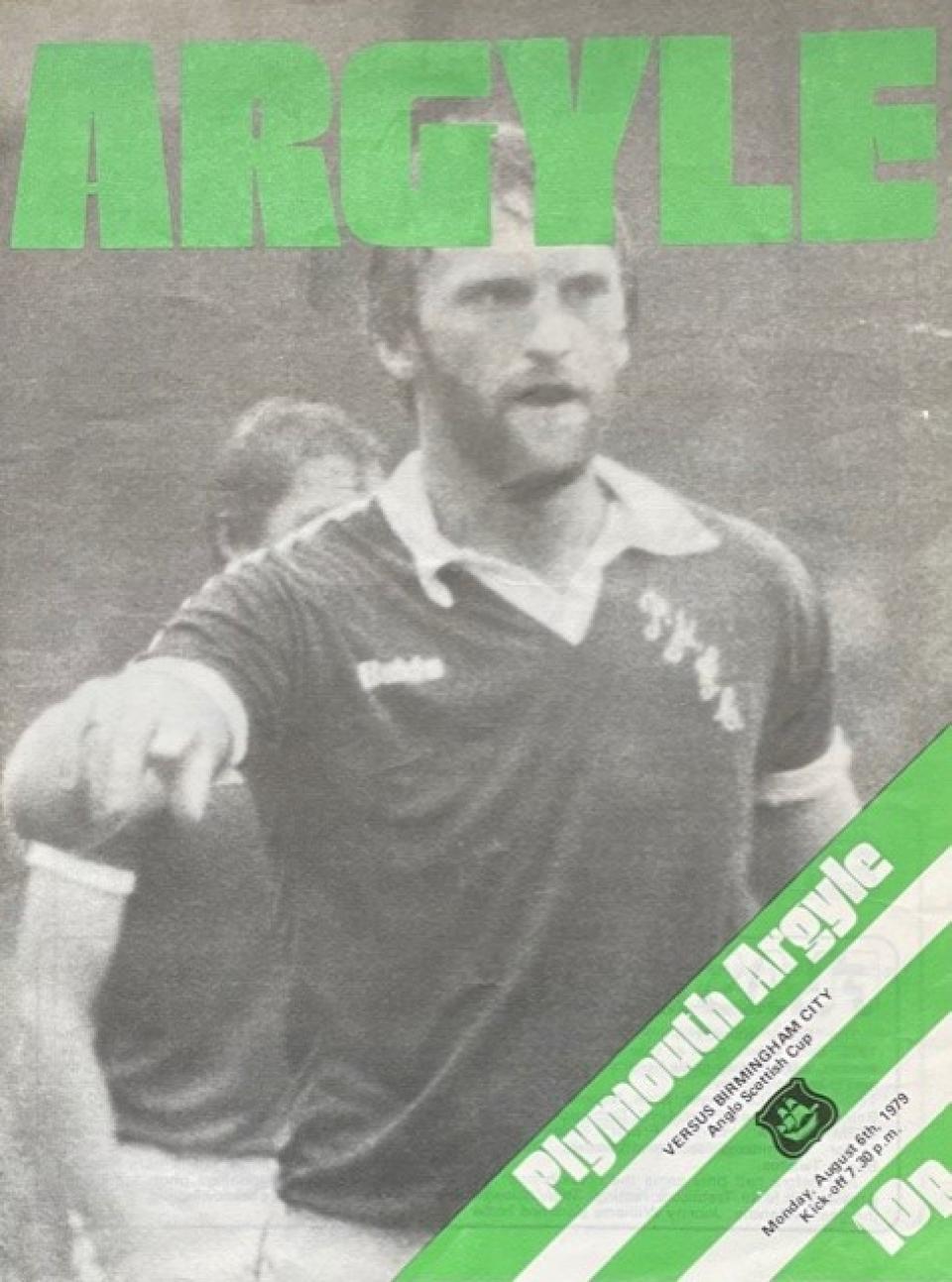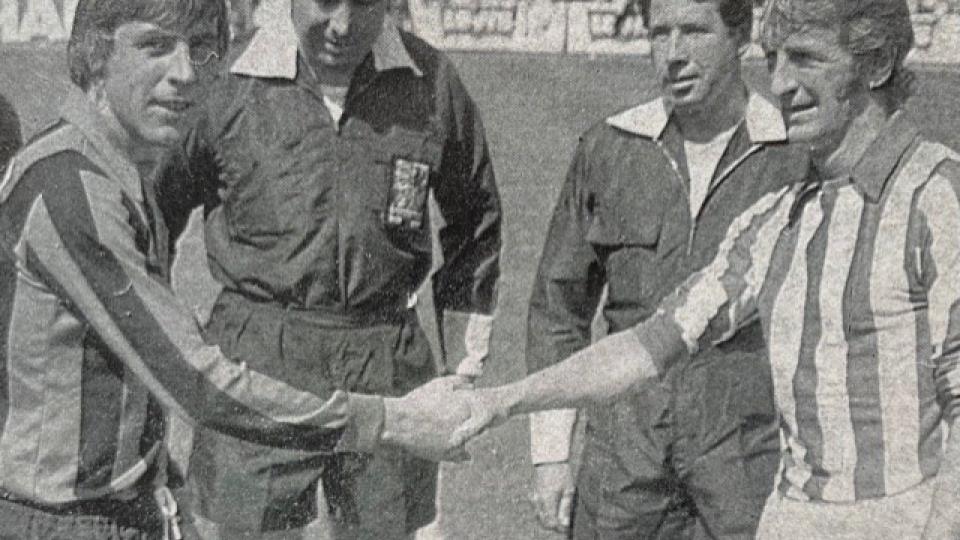We love our unique history at Argyle, but as well as the famous games and star performers, there are many tales of the unusual. Club ambassador Gordon Sparks will be unearthing the humorous, surprising and behind the scenes tales of years gone by in this fascinating series underlining what makes our club special.
Can you remember Watney’s Red Barrel? The company that brewed the popular beer decided to take advantage of the opportunity afforded as sponsorship was taking ahold in many sporting events.
The Watney Mann Invitation Cup was more commonly known as the Watney Cup, and Plymouth Argyle has a place, albeit a short one, in its history. That link was extended in a special way immediately after the Pilgrims’ only match.
Held as a pre-season tournament, the cup was contested by teams that had scored the most goals in each of the four divisions of the preceding League season who had not been promoted or qualified for European competition.
Two teams from each division made up the eight competitors, but there were no replays. With a straight knockout format, penalties settled any ties that were level after extra-time.
Running for four seasons from 1970, the Watney Cup claimed football history when George Best took the spot-kick in the first penalty shoot-out in this country for Manchester United against Hull City.
Argyle played in the competition’s final season after the 1972/73 campaign when they scored 74 goals in finishing eighth in Division Three.
A home draw against Stoke City saw Tony Waiters pit his wits against his opposite number steeped in the history of Stoke City, Tony Waddington, who originally joined the club in 1952 as a youth coach.
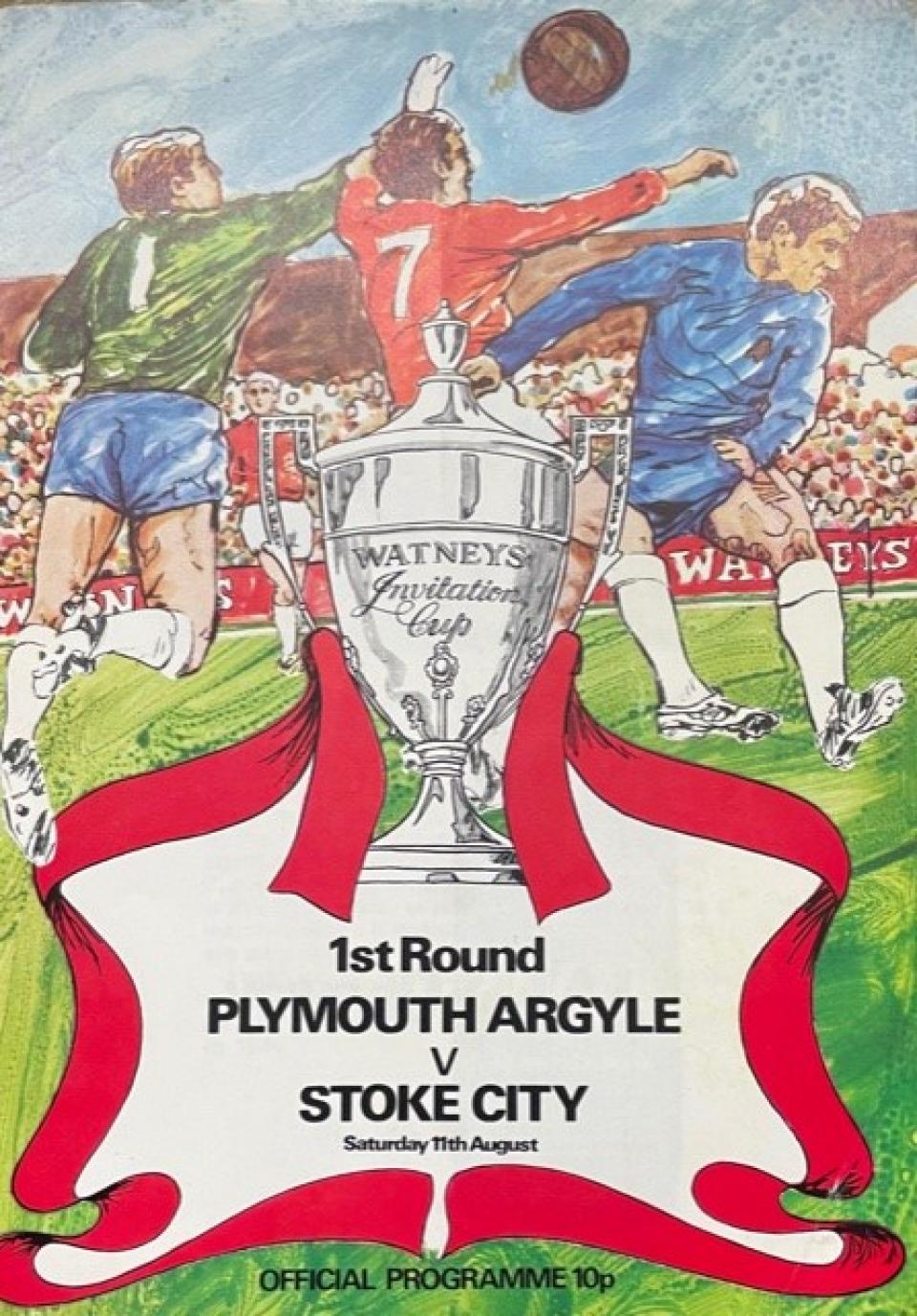
Stoke also had big names on the pitch including George Eastham, already decorated with an OBE and a League Cup final scoring hero, and former England legend Geoff Hurst, who scored the only goal of the game in front of 17,501 fans to end Argyle’s brief interest in the Watney Cup.
Also that day for City at left-back was Mike Pejic who later had a short spell as head of youth coaching at Home Park.
The Potteries club went on to lift the trophy, beating Bristol City 4-1 in the final, but events surrounding the match at Home Park had not quite finished with another World Cup winner in attendance.
Dignitaries gathered to meet and greet Stoke City’s Gordon Banks as he officially opened the new extended premises of the Vice-Presidents’ Club at Home Park.
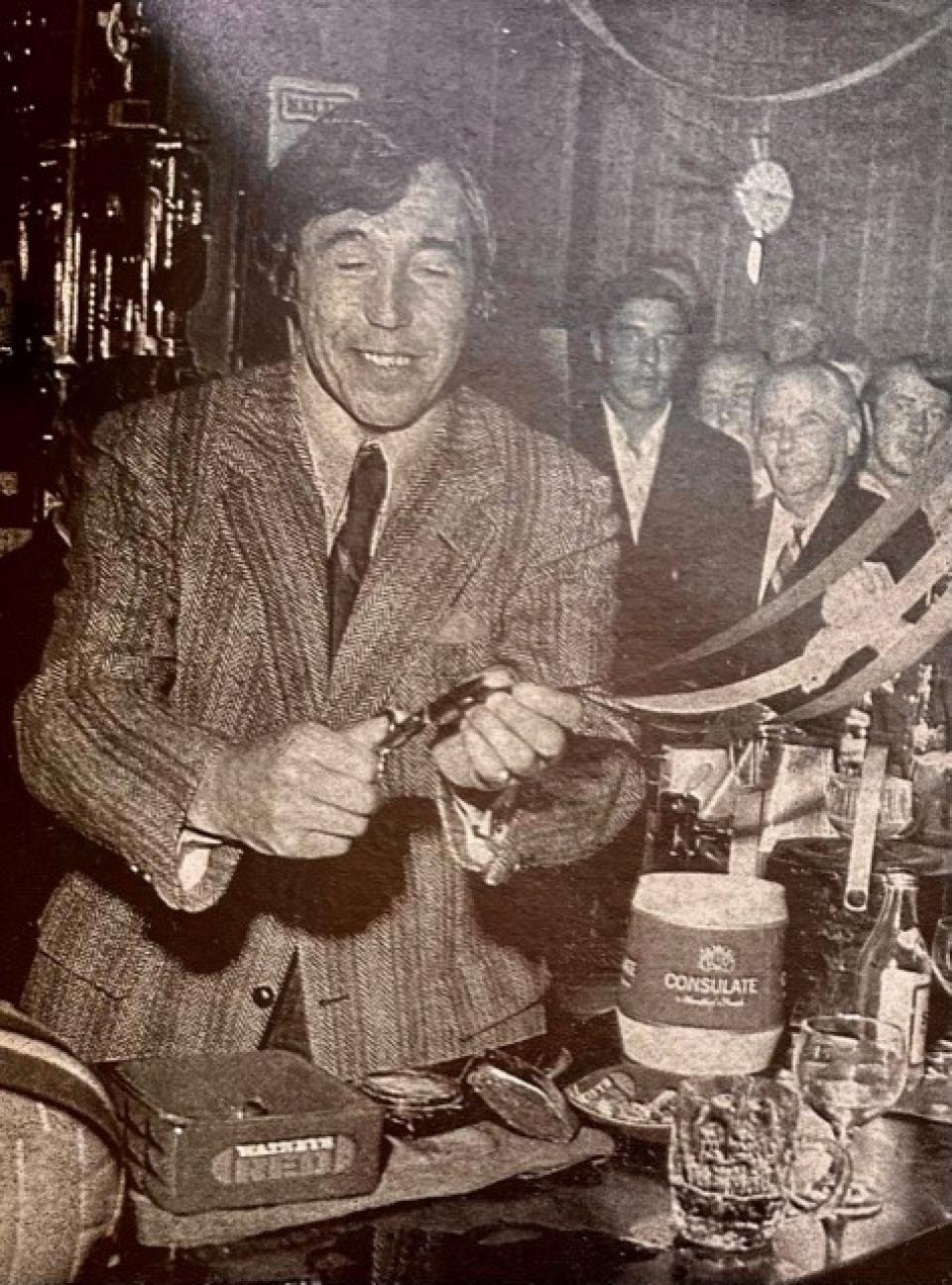
Just a week later, Banks officially announced his retirement from first-class football. Ten months earlier he had been involved in a road traffic accident that cost him the sight of an eye and although he had considered a comeback he was forced to accept it was too much of a handicap.
As expected on such a night, there was plenty of Watney's paraphernalia on show as Banks cut the ribbon on the club that was originally set up in 1969.
The grand opening saw two other sporting celebrities joining in the fun, England cricketers Fred Trueman and John Snow who were in the city to attend a function being staged by The Lord’s Taverners. But that wasn’t the end of big names!
The manager of the nearby Embassy Social Club at Milehouse, Jimmy Hillson, helped gain the services of names from the world of entertainment.
The biggest coup was one a major name in showbiz at the time who could command one of the highest appearance fees - reputed to be £1,000 a time. But Mr Hillson somehow persuaded comedian Frank Carson to put on a show on the big night free of charge!
If anyone was in any doubt that their eyes were deceiving them, Carson opened with his adapted famous opening line: “Frank Carson, News At Ten, Home Park”.
To round off the evening, crooning duo Milligan and Nesbitt, who found fame through the TV talent show ‘Opportunity Knocks’, serenaded the guests in another sign of persuasive negotiation with their appearance fee being a bottle of whisky and a bottle of gin.
Back to the football, and another competition long-forgotten by many in which Argyle participated was the Anglo-Scottish Cup.
Sixteen English clubs competed in four groups playing each of the other teams in their group once, with two points awarded for a win, one for a draw, and a bonus point for each side that scored three or more goals in a single match. Group winners then played a Scottish club in the two-legged quarter-finals.
It was created in 1975 as a new incarnation of the Texaco Cup, with a similar format to its predecessor, but involving clubs from England and Scotland only. The Texaco Cup had included Irish sides.
In the early years, around half of the English clubs were drawn from that season's First Division (except clubs playing in Europe). By the latter years of the tournament, through to its demise in 1981, only a couple of top-level English sides were playing, with participation stretching down to Third and Fourth Division sides, but an invitation to play was not mandatory.
Another unique twist to standard rules of the game allowed two substitutes (as opposed to one) but one of those had to be a goalkeeper.
Newly relegated from Division Two and fresh from a few days of training at Bisham Abbey, Argyle’s first appearance in the competition in the pre-season of the 1977/78 season came in the Group B game at Eastville - which at the time was the home of Bristol Rovers. Terry Austin gave the side managed by Mike Kelly a 1-0 victory as defender John Uzzell made his senior debut.
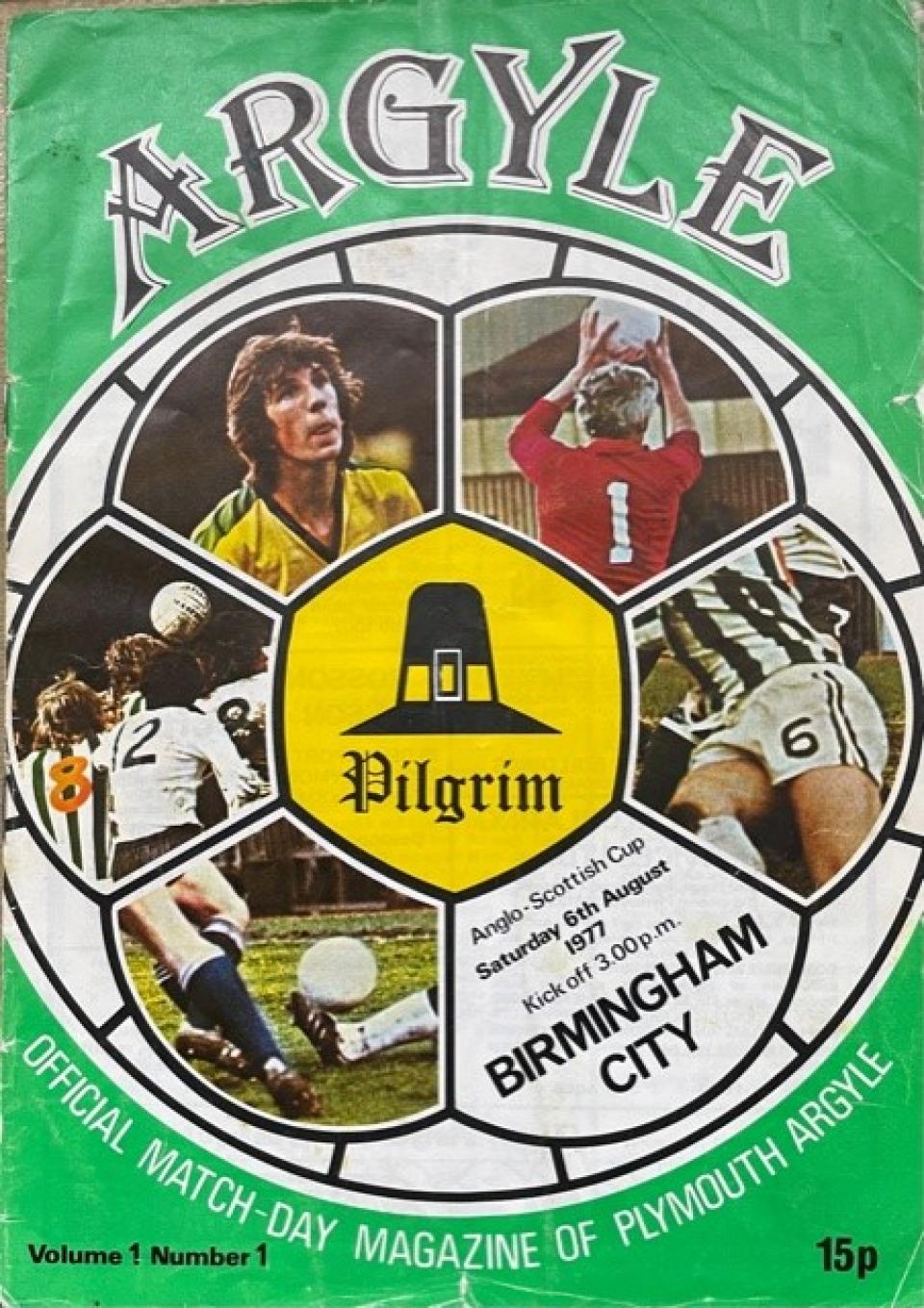
The first of two home games attracted just over 5,000 to see Austin again on target. One notable inclusion in the First Division opponents' team that evening was Plymouth-born Trevor Francis, but it was an own goal by John Craven that enabled Birmingham City, where Kelly had spent six years as a goalkeeper, to leave with a point.
Argyle finished third in the group following a disappointing 2-0 defeat at the hands of First Division side Bristol City.
Two seasons later, with Bobby Saxton then at the helm, another venture in the Anglo-Scottish Cup saw an air of familiarity with Birmingham City and Bristol City again drawn in the same group as Argyle.
But the opening Group D fixture was played at Fulham’s Craven Cottage. Saxton gave a debut to 17 year-old apprentice goalkeeper Neil Hards and the £50,000 signing from Southampton, central defender Forbes Phillipson-Masters.
Hards certainly didn’t let himself down with his performance, despite the fact he was beaten by the game’s only scorer, the former Arsenal striker Peter Marinello.
A home draw against Birmingham City saw Brian Johnson on target at a sparsely populated Home Park and the attendance figure dropped a little further to just 2,848 for the seemingly appropriate goalless draw with Bristol City.
Again, Argyle finished in third place, this time above Second Division Fulham. Some pointed to the fact that the London side didn’t take the competition too seriously according to their team selection which was an accusation also made to some other clubs taking part in the tournament.
